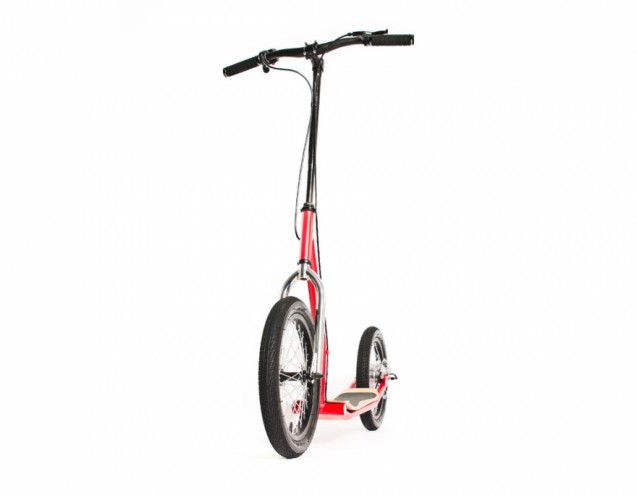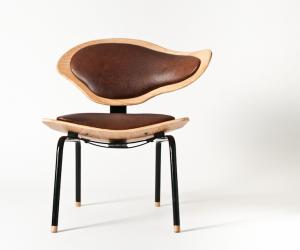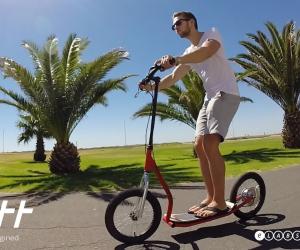What do you get when you cross a skateboard with a bicycle? The Watt scooter by eLabs, a new design outfit dedicated to creating urban mobility solutions for the South African market.
The Watt is an electric push scooter whose design is currently being refined by industrial designers Daryn Molenaar, Johan van Niekerk, Louw Roets and Mik Wertheim Aymes. The eLabs team began working on the scooter in August last year expect sales to launch at Design Indaba Expo 2015.
The scooter is the only one of its kind in South Africa, says Molenaar, who lectures in industrial design at Cape Peninsula University of Technology. Tired of being stuck in traffic thinking to themselves there had to be a better way of navigating the city, the group decided to design a solution. The best alternative that would have broad appeal seemed to them to be a cross between an electric bicycle and electric skateboard.
“You could see our scooter as a skateboard with handles and brakes or a bike with an electric motor and a lower center of gravity,” he says.
A small, powerful in-hub motor is attached to the back wheel while a thumb throttle on the handle varies the speed.
The design is very intuitive. We wanted to make something that didn’t need a manual to explain how to use it, Molenaar says.
Because it uses a variable wattage motor (between 250 and 350 watts), the scooter is considered a “Category L” vehicle that won’t need a licence to be operated on the road. “We see it as an urban mobility vehicle. Something you jump on to go to the shops to buy milk or meet your friends at your local coffee shop instead of struggling with parking or petrol prices that keep going up,” Molenaar says.
They’re also hoping to pitch it to the growing “active aging” market segment in South Africa – people aged 65 and older who want to remain active.
The scooter’s top speed is 22 kilometres per hour, the speed at which the eLabs team found it safe for the user to step off while in motion and which is four times faster than walking. An on-board lithium cobalt magnesium battery has a range of 25 kilometres and can be charged using a normal wall socket.
eLabs is now in the process of developing the battery system, speed controller and electric motor locally.
The team is also working on three variations of the scooter: Urban Watt, for people wanting to go from A to B in the inner-city; Utility Watt for businesses such as security and events companies as a substitute for golf carts and other small service vehicles; and Uni Watt, which will be customised with branding for different universities.
They have tested it extensively so far, with nine prototypes under their belt. But has it passed the ultimate test? “It manages to make it up Kloofnek Road, not at a top speed but it’s faster than walking and easier than taking a bicycle.”












